For the past several years, I’ve always begun the New Year with predictions of what the publishing industry would or wouldn’t do in the year to come. But this year? I’m being a rule-breaker and taking a different perspective—one I believe has greater impact and longevity. Algorithms rise and fizzle, publishers go out of business, change paths, or change rules. Heck, Amazon changes its mind more than my mother trying to pick a restaurant. So…eh. Not going there this year.
Unlike the days of early artists, we live in a light-speed society where something can fall flat or catch fire in an instant. This is an exciting time to be a writer.
We are in a New Age of the Artisan. When I give advice to young people about a future career, I simply want them to ask these simple questions. Can what I do be outsourced to a low-wage worker in another country? Can it be broken down into a procedure/manual and reproduced? Can it be done by a computer? Can I do/produce something consumers WANT that ONLY I can do, and do it really well?
I believe the future belongs to the artists and the rebels.
So….
Breaking rules. We all want to do it and, to be blunt, we should. I’ve dedicated most of the craft posts on this blog to teaching fundamentals, why they are important. If we don’t understand the rules, then we aren’t taking our profession seriously.
We can be Rebels with a Cause or Rebels Without a Clue 😉 .
First, to be a really GOOD rebel, it helps to study successful rebellions of the past. This is all highly redacted because this is a BLOG, but I hope it will educate and inspire you…
The Old Way
In the era before the Impressionist artists we now adore so much, artists could only live (survive) by being commissioned by wealthy patrons. Unlike today, paintings and images were extraordinarily rare. A human could live out an entire lifetime without ever seeing a painting.
Most regular people only saw paintings/images in churches or cathedrals. Visual art was planted almost exclusively within the realms of royalty and the very wealthy.
Thus, if an artist wanted to be PAID, he would paint what consumers wanted. Portraits were super popular (since Selflies hadn’t yet been invented). Artists would paint grand horses, breathtaking and realistic landscapes, religious pieces, etc. Why? Because YES it was art, but it was art that made money.
The Impressionists who are now so famous were actually very revolutionary, and at times? Extremely unpopular, ridiculed, and destitute. Though classically trained under the masters of the time, they wanted something fresh…different.
Thus, artists like Monet, Renoir, etc. began playing with color and light. Instead of something so realistic it might be a vision witnessed in person, they sought the haze of unreality, perhaps the look of lilies floating on water in a dream instead of life.
Another CRAZY notion these rabble-rousers had was to paint things that were very ordinary—women washing clothes in a river, landscapes of the docks with ships unloading wares, a peasant girl guiding geese along a path.
THE HORROR! Who would want to look at these fuzzy images of peasants and docks and REGULAR PEOPLE?
Well, apparently a lot of people, just not immediately.
Artists back then aren’t so different than today. If we want a “surer” bet for making money? We write what people want. The trick, though (especially for The Digital Age Author) is to write what people don’t yet KNOW they want.
We’ll talk more about that later.
Learning “Rules”
Picasso painted in the accepted classical style before he reinvented art as people knew it (and if one studies his work, it is clear he built in Impressionism and Post-Impressionism).
Hemingway learned how to write the “accepted” way (journalism) before he harnessed his training as a reporter and used it to strip fiction down to the bare form he’s now renowned for.
Elvis sang in church before becoming the King of Rock ‘n’ Roll. Even Ludvig Von Beethoven broke rules. He continued to maintain the basic Classical traditions of form yet he infused much more melody, rhythm and harmony, thus stretching the musical “vocabulary” of competing composers of the time.
The point I’m making here is READ. Read craft books. Understand the basics and fundamentals so much they are a part of you, then? Have some fun. Break some rules.
We Take Rule-Breaking for Granted
Writing Forms and POV
The novels we now enjoy DID NOT exist until roughly the 18th century. Even then, we wouldn’t particularly recognize them or like them. But, then again, storytelling has been evolving for thousands of years.
Stories were originally communal story-telling, expressed around a campfire, committed to memory or a cave painting, and handed down orally.
Later, humanity experienced the rise of the epic poem (works like The Odyssey or even Beowulf). Fast-forward and lots of religious writing, including works like Paradise Lost or Dante’s Inferno.
Then we see an explosion of poetry, plays and the invention of sonnets (an Italian guy named Pertrarch) then later that version of the sonnet reinvented into the Shakespearian Sonnet, which includes three quatrains (set of four lines, every second line rhymes) and a closing couplet (set of two rhyming lines).
Shakespeare, that rebel.
But each generation learned what was HOT during their time, then built their own visions atop the old. Pamphlets, shorts, and serials were actually the precursors to the novel (think Sherlock Holmes).
If one reads early novels, psychic distance was VERY…distant. Almost everything was written in omniscient POV. In my opinion, this was reflective of the age. People didn’t travel. They waited months for letters. News of a war came often after the war was over and the dead buried. It took months or years to travel to distant places, and the world was very disconnected.
This is why many early novels are guided by a God-like narrator.
Also, since many writers were paid by the word, novels were padded more than a freshman term paper (War and Peace). There was LENGTHY and tedious description because it was necessary. People didn’t have the kind of access to information we now take for granted.
People who had enough education to read and enough money for books also had A LOT more free time.
LONGER=BETTER
Additionally, the Image Revolution (brought about by the invention of film and photography) had yet to happen. Unless one spent a hundred pages describing a whale, no one (aside from those living on the coast) would know what the heck the writer was talking about.
This is also why we see authors like Mark Twain writing some characters’ dialogue in pure vernacular. Someone in England would have no clue what someone from Mississippi sounded like.
During the Industrial Revolution, we had an explosion of technology. Photographs, newspapers, telegraphs, trains, steamships, etc. connected humans more than ever, thus writers once again broke and rewrote rules. They began closing the psychic distance and leaving out now-common details.
In the 1800s third-person shifting hadn’t yet evolved. It wasn’t until radio, film, and later television accustomed audiences to shifting scenes that we see can the distinctive rise of third-person. First-person also became far more popular.
Because humans were more connected and closer, they wanted to be CLOSER to characters as well.
Writers like Hemingway stripped away the excess down to only necessary words. He broke rules of overwriting, believing that all the “superfluous” details took away from the essential human story.
As we progress into the 20th century, we see the rise of close-third. Today, close-third and first-person are very popular. Why? We are a Reality TV Generation. We’re spoiled with intimacy. Omniscient would feel alien and cold to many of us.
Breaking Rules of Genre
All early sci-fi, gothic, fantasy writers broke the rules of what people wanted to read. Like painters who no longer wanted to create works of reality, these authors dove into unreality. Jules Verne, Mary Shelley, Tolkien? All rule-breakers.
Genre, to be blunt, was invented by those who sold books. When physical books started appearing in bookSTORES, book SELLERS needed a way to know where the heck to shelve a story to help potential customers locate what they might want to read.
Genre was also highly political.
Horror was a VERY popular genre until the slasher films and gore-porn of the late 1970s and then the 1980s tainted the entire genre. Then we began to see horror “disappear” and labeled under other “genres.” “Supernatural” for instance.
****But, as an aside, gore-porn like Texas Chainsaw Massacre also broke rules. We were a nation reeling from Vietnam. The rules of horror before had been, “Wait until daylight and you’re safe.” TCM threw that away. We were NEVER safe EVER.
Speaking of breaking rules, I bet this is the first blog you’ve read that talks about Beethoven, Renoir, Hemingway AND Texas Chainsaw Massacre. 😀
Moving on…
What to Do With The Digital Age
In The Digital Age, humans consume more information in a week than our early ancestors did in a lifetime. We are connected globally 24-7. We’re exposed to all kinds of ideas, information, myths, cultures, subcultures, etc.
Strict genre is blurring as brick-and-mortar stores give way to digital bookshelves. Writers also have access to new audiences and emerging markets.
When we study the works of artists of before and even today, we can see areas where we might try something new. Since we are no longer chained to making it through Gatekeepers of NYC? We have a lot more freedom to be artists.
Now, I will say that breaking rules, while fun, has a price. People might not “get” it for a while. We need tough skin. We also need to make sure we are being artists and not amateurs. All art still has structural rules that need to be followed to maintain integrity. Rules are meant to be a foundation, not a straight-jacket.
For instance, architecture is art, but it must merge with rules of engineering or all we’re left with are pretty but deadly bridges, injuries, lawsuits, mold problems, and leaky, unsafe roofs.

The roof of Daniel Libeskind’s Westside Shopping Center in Bern, Switzerland has collapsed twice since its completion in 2008, the second failure injuring three people and narrowly missing a small child (refer to above hyperlink)…
Aesthetics are fabulous, but architects are commissioned to build a bridge that cars can safely traverse…not a billion-dollar sculpture. As writers, we produce books, so we must still have a story or we don’t have a book.
Next time, we’ll explore some more contemporary rebels and maybe even brainstorm some ideas about how we can reshape our art and bring fresh new ideas to our readers. We’ll even talk about the writing business, because business must also be creative and evolve or it will die.
Remember, if artists HADN’T broken rules, we’d all still be memorizing stories and painting on cave walls 😉 .
What are your thoughts? What “artistic” rebels do you admire and why? Do you like it when a writer defies conventions and surprises you? What are some artistic ideas that have fallen flat and why? Did they confuse you? Bore you? Deviate too far? The ones you liked, what was different that intrigued you?
I LOVE hearing from you!
To prove it and show my love, for the month of JANUARY, everyone who leaves a comment I will put your name in a hat. If you comment and link back to my blog on your blog, you get your name in the hat twice. What do you win? The unvarnished truth from yours truly. I will pick a winner once a month and it will be a critique of the first 20 pages of your novel, or your query letter, or your synopsis (5 pages or less).
I will announce December’s winner later (probably next blog) when I have had some SLEEP.
For those who need help building a platform and keeping it SIMPLE, pick up a copy of my latest social media/branding book Rise of the Machines—Human Authors in a Digital World on AMAZON, iBooks, or Nook.


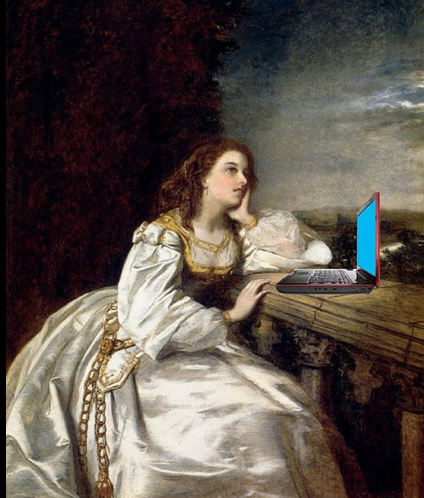
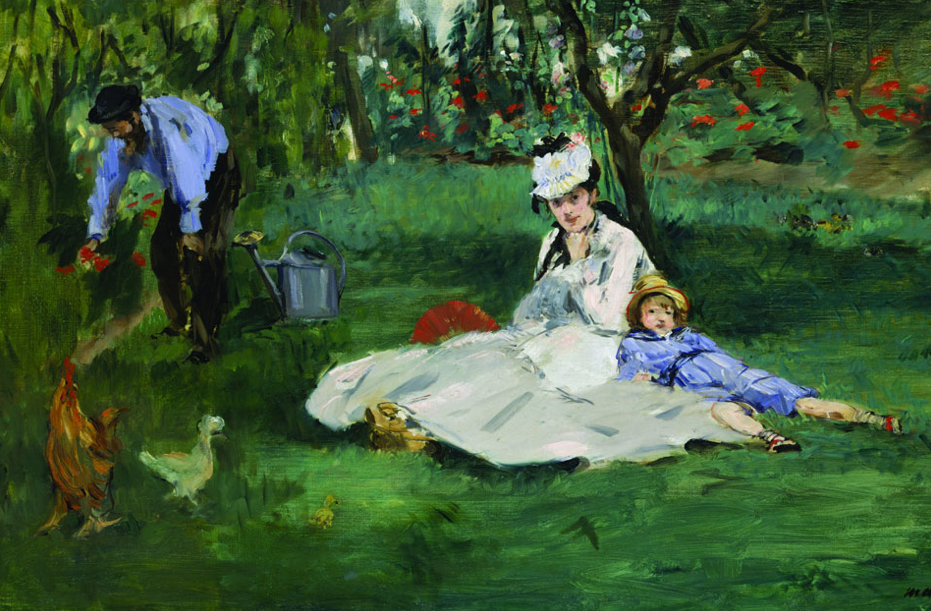
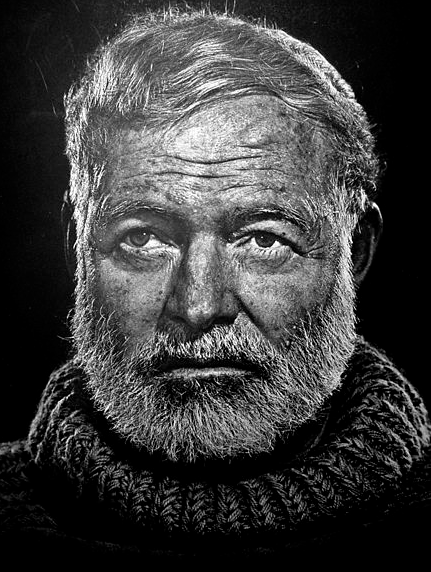
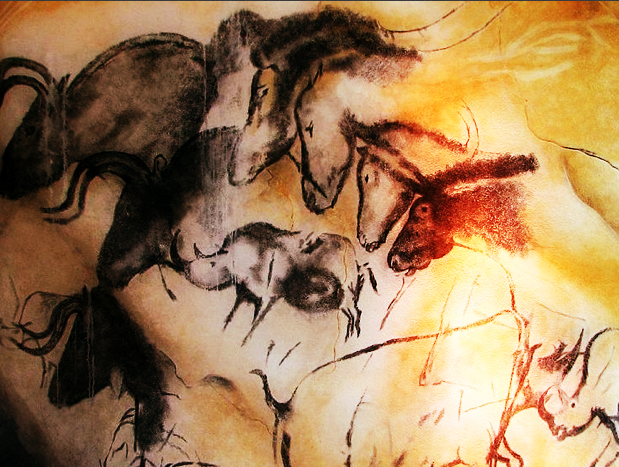

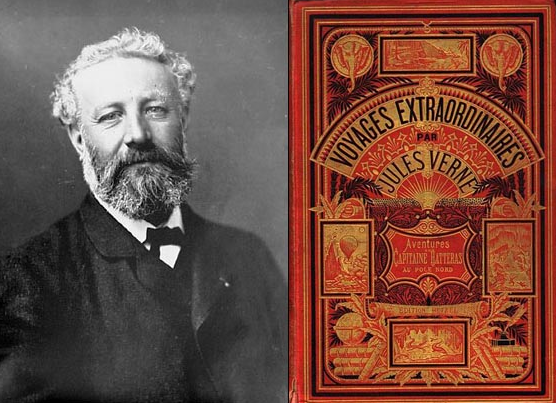
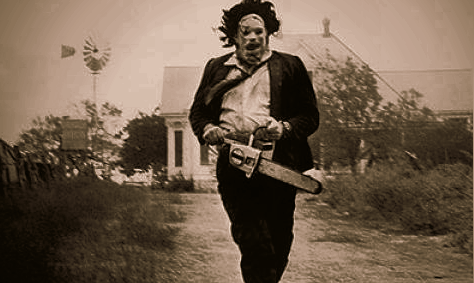
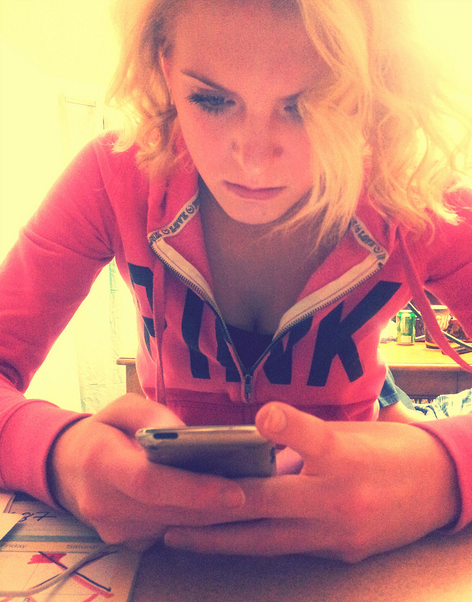







99 comments
5 pings
Skip to comment form
Reblogged this on galesmind and commented:
Great ideas!
Awesome read! Breaking rules can be difficult especially if you’ve read a lot, you tend to think you should write like what you’ve read. Finding the balance is tough!
Love this blog a lot and appreciate all the comments.
Check out my writers blog at
https://sites.google.com/site/dalanbinder/blog
I like a really engaging story – how it’s told is secondary. But I do get annoyed with writers who push the boundaries for the sake of pushing the boundaries. If it’s not serving the story, it just comes across as “look how clever I am!”
Agreed.
Agreed 2
Agreed 3
Very cool march through history and how changes influenced writing. Thanks for posting it.
Kristen, Please put my name in one of your hats. I have a lot of comments but I will leave those to an occasion that will suit better and get better results. Yours Thor
With a name like Thor, I would just a separate hat for you… lol
Author
RIGHT????
As always, Kristen, you hit the nail on the head. Change is uncomfortable for most of us, but embracing it makes life and art so much more interesting.
I love the idea of breaking rules with my writing. I’m definitely ‘all in’ as a rebel with a cause. Thanks for a fascinating and thought-provoking blog.
Fabulous post, Kristen. It is very helpful to look back to think forward.
Reblogged this on Stanislava Kohut and commented:
You must learn to follow the rules first before you can break them. When you do, do it with all you got!
Abundantly agree.
One must embrace change in order to succeed.
Nicely said!
As I put it when I’m teaching about working with horses. You must know the rules and understand the reasons behind them before you can safely break them and not end up in the ER.
I totally agree with point of rule breaking. We all must first learn the rules before even thinking about breaking them. Everything we do must have a structure and style, otherwise it collapses. It takes time to find your own style, your own way to express your feelings through art, or to get the story you’ve been wanting to get out for so long.
In this age of insta everything, Twitter and Instagram fame, people aren’t willing to wait, to learn and that usually comes with heartbreak and disappointment.
It takes hundred failures to succeed once. The most important thing is to keep going, keep learning, perfecting the craft.
In my critique groups, I am often surprised by how many writers think that all the “rules” they read in craft books must be followed precisely, such as “no backstory in the first fifty pages.”
Ha! I was just criticized for having way too little back story in the first, like, three pages. Lol.
I agree totally. When i did my business-oriented Masters a year ago the term Disruptor was bandied about alot as was the entire shift in production away from what we would more recently consider the traditional. The time of the artisan has returned, assuming they embrace the tools and mindsets necessary. Thanks for the article. It was a good read ?
As usual, you are so insightful and therefore helpful to all writers struggling with their chosen craft.But I do have on comment and question on your sentence … “Since we are no longer chained to making it through Gatekeepers of NYC. We have a lot more freedom to be artists.”
My experience is this is just not true. I recently sent a novel I wrote to a Writer’s Digest contest. I received back from a “judge” the lowest grade possible. Why? Because I used the Viet Nam War as a backdrop to a point I was trying to make about the difference between the “spirit and letter of the law,” The “reviewer” disagreed politically with what he/she thought I was saying (or not saying) about that War (which was totally misread, btw). The “judge” even went to far as to scold me for not writing this novel “fairly”. Because of that political bias, my book never got a fair shake in that contest. So tell me again how we are not “chained to making it through Gatekeepers of NYC.”???
Author
Indie and self-pub. You could publish that same story and let your audience make up their own minds instead of one overworked, biased, and likely unpaid judge for a writing contest.
That judge is not a very good judge. His or her personal biases in terms of the subject matter should not affect his judgement of the quality of your story. The point is whether or not you, as the author, has achieved what you set out to achieve, not whether he likes what you wrote or not. readers vote on what they like, judges of writing contests should judge on craftsmanship. They should also be able to see what an author is trying to achieve, then they can evaluate how well they have done it.
I entered a contest with a novella that was done in a format I’d never used before and definitely it broke all the rules. It took a couple of twists I’d seen in other novels and my own imagination to get it to work for the story. That’s what it’s all about – telling a great story. I won that contest and a contract with a very reputable publisher. The editor, a very experienced professional, loved my story and the altered format.
Although Kristen has stated we are no longer chained to rules. I believe if we employ strong fundamentals and target the story line, rules can be bent with reasonable success. We can only chain ourselves and the gatekeepers can only read what we give them.
Before you self-publish – The judge may have been totally incorrect, but you need to make sure your book is saying what you want to say. If a reader, in this case a judge, completely missed your point – it may not be as clear as you think. I would suggest you have someone else read it and review it for you. Sometimes we see what we meant, rather than what we actually wrote. I got burned that way myself.
Great post, Kristin. I think about your ideas a lot, and this is another good set of ideas! Thanks.
A great read Kristen. You are off to a great start to 2015, keep up the good work. You are helping many new writers and would be authors including myself.
I agree that rule-breaking is essential for art. But I also think we need to learn the rules and master them before we can go about breaking them.
Ah, I do love history and you blended it into your post with extraordinary skill. I like an artist who can take convention and blend it with groundbreaking new ideas to produce work that’s equally familiar and new. The Beatles come to mind. They mastered all that came before them and then expanded on it and stretched it until it was unrecognizable, yet felt comfortable. Too little fire in the hearth harnesses nothing. Too much burns down the house. Just the right amount of our wild friend and we have a heat along with a beautiful visual.
Stephen King is my favorite author and Edgar Allan Poe is my all time hero. I don’t know if they broke any rules. I just adore them. How much that I love (so much so that I saw each movie at least three times, all in the cinema) the film version of Tolkien’s works, I can’t get a hang of his books. To me they seems … childish and not very well written. Dan Brown bores me but not as much as John Grisham and Tom Clancy. How much that I tried I can’t digest Harry Potter (both the movies and the books) and Twilight. Fifty Shades of Grey I did not and will never read. Generally I don’t bother with romance. Romance you do in real life not read about it.
Poe constantly broke rules and invented genres. Shelley did something women didn’t do, write horror laced with social commentary. If we don’t break rules, how do we know our limits?
I love the line, write the story people don’t yet know they want to read.
Great post!
One of my favorite authors is Diana Wynne Jones (Howl’s Moving Castle). Each of her books, she tries something I’ve never seen done before, ever. (I mean, a girl cursed and turned into an old woman? How often has THAT been done?) She said that she just looks at what’s popular, takes that idea, turns it 90 degrees, then writes it. I’m trying to do the same in my own work.
I do think people take rulebreaking too far, though. Like the indies who swear that they don’t need editors. Those people scare me.
Agreed Kessie. They scare me as well.
However, as Indie Authors we have a great literary aspect to “rule-break” to our heart’s content. Genre and theme. Not everything we write has to be a zombie-vampire teen romance. We can play with the conventions of genre and subject matter.
Remember what Sergio Leone did within the genre of The Western back in the 60’s.
Author
Those are called “hacks.”
Hacks, yes, I agree. This is what happens when people break rules for the sake of breaking them, or when there is no reason except to flaunt one’s freedom to do so. The results can be ridiculous. We should write what springs naturally from our well of creativity; if that breaks rules then that’s the time to break them, not just because we think it would be cool to break them. Broken or not, all rules are tools to be used to support our creative expression.
Oooops. I didn’t mean to imply breaking rules for the sake of it. We should feel free to tell a story and not have to worry about it being rejected because it doesn’t fit into the model from a traditional publisher’s marketing computer.
Reblogged this on Laurie Boris, Freelance Writer and commented:
Kristen Lamb shares a bit of brilliance about the history of literary rule-breaking.
I have to admit: I do admire many rule breakers… except the ones producing so called “naïve art”.
I personally love art – as long as I can SEE what it is… (In one of the biggest cities in the world there is a painting of me – except that nobody would EVER recognize me… I was laughing loudly when I saw that painting and the only thing I said to the artist after he was done: I’m glad you don’t ask me if I find it looks like me)…
I think I am a lousy, terrible drawer and painter – I haven’t made any progress since Kindergarden. So why in all the world I should think naïve art is any better than my own disability to paint? The only thing I think is worse, is the rich people paying a freakin’ fortune for that crap…. *sigh*
I love this: “All art still has structural rules that need to be followed to maintain integrity. Rules are meant to be a foundation, not a straight-jacket.” There are still too many authors who reject the rules (I prefer to think of them as guidelines anyway), saying they are a straight-jacket for their creativity, but really that’s an excuse for laziness. Rules are tools to be used where appropriate and discarded only with a very good reason.
Genre rule breaking is common now with indies, and books are far more interesting because of it.
My latest book breaks rules in many ways. Not only is it a metaphysical thriller/women’s fiction mix but it also has three completely different stories in it – 2 only partially fleshed out – several chapters that stand as short stories in their own right, and different parts are written in different tenses and different POV’s. Sounds like a mess, right? It’s got an AIA Seal of Excellence though. One of the AI reviewers said it was “One of the most innovative and original works I have read in a long time.”
My point in mentioning this is that I could never have made Prunella Smith: Worlds Within Worlds work when I first started writing, back before I’d done my study. I knew when I wrote it that I was taking a risk, that it might not hang together, but where I ‘broke’ the rules, I did so for a specific purpose, and what made sure that it did work as a whole was applying the ‘rules’ of plot creation. Perhaps you could say that I didn’t so much break them as apply them in a different way, or for a different purpose.
Very nice post. 🙂 I like the perspective and the research. Mark Twain was one of the biggest rebels of all time BTW for all that dialect. The literary establishment of the time was horrified. And yet it was a pleasure to read for those who wanted to know what it is truly like to live in the lower class or be black at the time. That is one thing perhaps to keep in mind while trying to find one’s own rebellious path. Break rules that fetter, but don’t do it just to be a rebel. Do whatever you do because you would love it as a reader. If some type of reader would love it (even a very small and from-today’s-standpoint eccentric type of readership), then it might just be a good rebellion.
P.S. This is one post I’ll go manually share on Facebook but I would share these a lot more often if there was an automatic button. Life is busy. Possibility?
Author
I used to have a widget. I’ll go look at it. WP sometimes eats them. Thanks. There is a bar at the very bottom that allows you to share wherever you like. Let me know if it isn’t working. And thanks for the SHARE!
I LOVE art and LOVE history, so this is my favorite blog post of yours yet. Both are such good metaphors for the reality of writing – styles and markets constantly change with the times. I am an accidental writer. I wrote a letter to the editor of the city newspaper, and they hired me as a freelance columnist for eleven years without any journalism or formal training. Does that count for breaking a rule? Now, after a writing hiatus I am trying to learn the dual crafts of writing a full-length book and creating ‘engaging’ social media. For me there is equal craft and skill to mastering social media. I enjoy your blogs because they address both crafts. I would love, love, love to be drawn for a brutally honest critique of my first 20 pages. Have a Happy and Healthy New Year!
As part of my day job, I take parties of English school kids to art galleries such as the Musee D’Orsay in Paris and show them round (I do the whole of Paris but it’s the art that’s relevant here). I have to explain to them the revolution of the Impressionist movement to people who genuinely can’t grasp quite how much of a revolution that style truly was. I also notice that there are plenty who prefer the art from before Impressionism, because it strikes them as more real and more skilled and more accurate. People’s reactions are very personal. When it comes to books too; I waded through Moby Dick during my final year of my my degree. I would not have chosen to read it if not obliged to but I can see its merit, but I have enjoyed Dickens and Hardy and other contemporaries.
To quote Granny Weatherwax, doyenne of a modern classic, “When you break rules, break ’em good and hard.”
I always learn a lot coming to your blog and today is no exception. After reading this post, I am going to learn more about the writing art. The more knowledgeable I am about the art, the more artistic my rebellion will be! Happy New Year Kristen!!!!!
I’ve always thought that rules are there to be broken.
Then when I studied nursing in college, I understood the significance of the fundamentals.
It helped me saved and nurtured a lot of people.
We really need to have both. Learn the fundamentals and be an expert on them then think of the box and break the rules to make something original or something the people want, that’s never done before.
Everyone of us, I understand, are always looking for something fresh and new.
Great post! Happy New Year Kristen! 😉
I’m with you on this. One must do more than read, however, one must practice. Ray Bradbury said he wrote two million words before his first short story was published. Starting in journalism, like Hemingway, is a good way to exercise craft; no excuses or writer’s block allowed. Kristine favors blogging, but why not turn up the heat and do journalism? Deadlines are amazing motivators and an editor’s red pen is a direct, visceral teacher. And yes learn the craft well before breaking the rules. How to learn it well? Practice it under scrutiny along with craft education. My philosophy is this: Load the left brain and then let the right brain rip. Step one is get knowledge which includes practice.
I’ve recently been reading fiction written with no quotation marks for dialogue passages (Cormac McCarthy, William Gay, etc.) and finding it dreadful. What’s the literary or stylistic value in breaking this useful punctuation rule? I don’t see it as enhancing the reading or the characters at all. It’s totally unnatural to me. Anybody here have thoughts on this?
Author
Not all art is for everyone. “No Country for Old Men” drove me BATSO.
Reblogged this on Wynwords's Weblog and commented:
Love this post! Food for thought in the new year.
Reblogged this on Daven Anderson's Blog and commented:
The more connected the world is, the more ‘social’ an author is now expected to be. I fear we’re locking out the future J.D. Salingers, silencing the future Catchers In The Rye. It is still true, as always, that you do NOT have to be a social butterfly to write a great novel. The next REAL outsider masterpiece may rest forever ignored on KDP, simply because the author won’t fritter with Twitter… 😉
My favorite author is James Patterson. In his later works he use multiple POV and I have found that I really like reading the story from the viewpoint of several characters and not just the protagonist. I am new to writing fiction, still getting my feet wet as an article writer. It is my goal to have people read what I write AND to make some money doing that. Today I have one question for you Kristen: could you please explain to me what “close-third” is? Give an example? I am educating myself about writing so things some of you might take as common knowledge are as yet unknown to me. Thank you! Susan.
The limitations of a single POV were never more apparent than in the Twilight Saga. Being stuck in Bella Swan’s POV for 3½ books straight was a major motivation for me to switch to multi-POV (as well as covering much more story ground than any one character can see at any one time).
Author
Maybe I should just do a blog on that. In a nutshell, it tightens the POV further, eliminating sense terms like “felt.” I’ll elucidate better in another post.
Visiting your blog for the first time. I agree we are in an unprecedented era in which breaking the old rules is almost necessary for survival in any kind of work, but especially the arts. Things have changed so much during my lifetime, and never has there been a time when it is more necessary for all of us to assess our own strengths and be true to ourselves and callings. There seems to be a niche for everything. I see an emerging counter-culture trend away from digital everything and more toward analog “alternatives” – e.g., face-to-face socializing, in-store shopping, paper books. I think there may even be a sub-trend for real letters sent through the mail! But this could be wishful thinking.
I love your advice to young people. My two college-aged sons have both decided to go straight to work in their own businesses, one creative and one technological, and take college classes as time permits and necessity requires. They are motivated by their passions and how their passions coincide with the needs of the culture and the markets. Old-fashioned Mom that I am I first shook my head at their plans and urged the importance of getting that college education first. But so far they are both among the happiest people I know and I am amazed by how well their plans seem to be working for them. They are never bored, are not partying (much), are not racking up debt, and have a sense of purpose.
I agree about the advice to young people. My son also is trying to develop a creative career, and I’ve forwarded this to him.
If the history of artist (including writers) keeps on following the path as you’ve laid out here, I would assume that physical books, the ones with binders, will continue and the digital will be an addition, not a replacement.
Deborah Harkness (she wrote A Discovery of Witches, Shadow of Night, and The Book of Life) does this thing where she switches from third person to first person. I found it really intriguing, and quite entertaining. Never seen it before reading that trilogy.
Definitely going to share this on FB. I would reblog it, but my blog ran out of steam, and I haven’t yet hooked up the solar panels to the new one. I will have to come back and reblog when it us up and running.
Great post Kristen, I love your articles can’t wait to read more!
Author
Great to meet you, Sabrina!
I so needed to hear this right now. Funny how the right message comes through at the right time. Thank you!
Thanks for the fascinating take on the history of writing!
I have a friend who has studied the rules of writing and follows them to the point that it stifles her creativity. Her YA is much better than her cozy mysteries, because cozy mysteries have a lot more rules and expectations to them. I wish i could help her let go enough to allow herself to write her book despite the rules.
Author
Have her write both, put them for sale and see what readers like :D.
Loved this post. Thanks.
Great post
Great post, thank you! I agree that knowing the rules before breaking them is very important. I’ve seen too many writers who, for example, leave tons and tons of grammar and spelling mistakes in their work and just say it’s their personal style. Then of course there are writers who know every spelling/grammar rule exactly and know how to spin the language in a new clever way, which can create a very personal (good or bad depending on opinion) style of writing.
Good post, but I hope you’ll get more into the BOOK rebels 🙂
Though I’ve not read much by him I think Lovecraft was a definite rebel and one who, as many others, was not recognized at the time. I’m also a big fan of Anne Rice who totally reinvented the vampire yet still respected its heritance (unlike Twilight).
Breaking the rules is important but sometimes genres are the way they are for a reason. Fantasy – dragons just work awesomely in that genre. I think it has something to do with ours better understanding this big, living creature wanting to smash us instead of some strange, far-away weapons of today.
Author
Yes, next post will be about only writers, most living. This piece was to simply show how all art evolves and HAS to. And the only way it will evolve is if we break rules.
Just like a recent musician and artist I admire greatly spoke about creating his music with zero studio fuckery; I write my fiction novels in order to create characters of greatness that people will imitate. There is enough hate in this world. Resist the urge to create words full of mindless violence no matter how many BMWs it will buy you. Creative writers are the unacknowledged legislators of the world. We create the cultural mores that people live by, and this is an awesome responsibility, by English poet Percy Shelley. IMHO, there isn no greater calling than to become a creative writer and I feel so much gratitude that I found that calling. Write with love, my friends.
Thought-provoking! I especially love the reference to Impressionism, my favorite genre of art. I write fiction and teach creative writing, so the “rebel” theme is one I am very interested in. The rebellions that fall flat, in my view, are the ones that place the importance of rebellion above story. The key to successful writing is the successful conveyance of story from writer to reader. Artists shouldn’t let their unconventional styles get in the way of that!
As an published person attempting to write, can you be called a writer if you haven’t published?
That is just musing. In reading a book by Trevanian called “Shibumi” he criticizes the Volvo automobile and alludes to young people bashing the vehicle hoping to dent it. I wonder if he really did dislike Volvos and was just trying to start a campaign to not only denigrate them so that they would less likely to be purchased but also as a form of remote control revenge? Course he is deceased so that we may never know the answer. I don’t know of any other novels that the author seemingly tried to damage a manufacturer’s reputation in such a low-key man
Author
If you write words, you are a writer. You are simply a pre-published writer.
Cheers to writing rebels.
I’m intrigued by the return of the novella. It seems a perfect medium given our fast-paced lives. And perhaps shorter works will fit the writer’s need for increased exposure in the digital world.
Author
I think your assessment is correct 😉
Wow I am simply amazed of your writing style and research you put forth in this. Very engaging!
I LOVE this! Not only have you shed light on some literary phenomena through the ages, you have also explained how to be a good rebel writer. I am thoroughly impressed. Keep up the fantastic work!
Personally, I’ve never understood those ‘choose your own adventure’ novels. They’re interactive, to be sure, but oh so confusing as well. Aside from that, I love reading a book that has elements I’ve never seen before. For example, magical realism is relatively new; the first book I ever read in that category was ‘The Sugar Queen’ by Sarah Addison Allen. I hadn’t known at the time what it was, and it caught me off guard–it ended up being a wonderful book, and the magical elements felt more like the icing rather than the cake itself, which was refreshing.
I particularly enjoyed the linking of POV distance to era. That was an eye-opener, but as a student of both art history and literature, I also agree with your conclusions.
Loved this. A great look at writing through history and an exciting peek at what might be to come. I for one am also welcoming the return of the novella and short stories!
I enjoyed the little tid bits of history. I didn’t know it was rare to see paintings back in the day. Oh how we’ve come so far. Reading about the tweaks to the rules was very refreshing and made me more confident with my CREATIVE writing thus far. (You know how it, always in doubt, “Is this good enough?”)
Anyways thank-you for your blog and Happy (belated) New Year!
Hi Kristen— I enjoy your blog, so I nominated you for the Very Inspiring Blogger Award. Details are here:
http://yvonneventresca.com/1/post/2015/01/inspiring-blogger-award.html
Happy New Year!
Speaking of Hemingway, Kristen, I finally got around to reading A Farewell to Arms at my husband’s suggestion. SPOILER ALERT—–I finished it last night and cried like a baby. But yes, I see where his writing style is spare and straightforward, with nearly every sentence in simple subject/predicate form. He also breaks the rule I keep reading about, of not using long descriptive paragraphs. He often describes scenes, pages at a time.
But he’s a legend. I guess he could get away with it, where you and I can’t.
Thanks for the info. Breaking the rules can be hard to do because we are so adept at being in our comfort zone. Authors tend to stick to what they know that stepping outside the comfort zone can be scary.
Reblogged this on The Night Owl's Guide to Reading and commented:
Rebellion promotes art – a fantastic lesson for us writers. There’s a reason why I love Hemingway….
Looking forward to the day when my inner rebel can be set free. Still parsing the rules though. Favorite rebel? Salman Rushdie, Children of Midnight. Maybe it was just my mood at the moment, but that book blew me away.
Cool post. Thanks for the epic perspective on unchaining the maverick. Someday…
In my humble opinion, and this might be obvious, Tobymac was rebel and pioneer in Christian music. Christian rock was new but it all sounded the same. Tobymac through the band DCTalk redefined what Christian music could be. Even as a solo artist, he is reshaping the whole Christian music genre.
Author
I love TobyMac and agree.
As a ‘pre-published’, novice writer I learn so much from you, Kristen. Thank you.
Hi Kristen. I really enjoyed this post, lots of food for thought! Linked back to it from my blog as well 🙂
I always love your insightful posts! What a great perspective- and PLEASE put my name in the hat 🙂 ~ Carol
I was once in a critique group where the founder kept telling me I couldn’t do certain things with my writing. Sometimes quite adamantly, pounding the table with her fist. Sheesh! My writing went on to receive an honorable mention in Writer’s Digest’s Self Published book awards for MG and YA in 2013. Thanks for the article, I enjoy reading your perspective. Linking back from my website!
If you want to change the world you need to do something different, you need to be a risk taker or rule breaker but first you need to know your craft.
Another great post! Rebloggin this one.
Reblogged this on Author Sean T. Smith and commented:
Some great perspective here.
I love it when a blog gives me an ah ha moment! And congrats on the top fifty!
Reblogged this on John Oliver Mason.
[…] Here’s to Breaking Writing Rules—Rebels With a Cause or Rebels Without a Clue?. […]
[…] http://warriorwriters.wordpress.com/2015/01/02/heres-to-breaking-writing-rules-rebels-with-a-cause-o… […]
[…] http://warriorwriters.wordpress.com/2015/01/02/heres-to-breaking-writing-rules-rebels-with-a-cause-o… […]
[…] Kristen Lamb wrote in this post that many of the most famous, and best artists gave their audience something they didn’t yet […]
[…] Awesome post: Here’s to Breaking Writing Rules—Rebels With a Cause or Rebels Without a Clue? […]